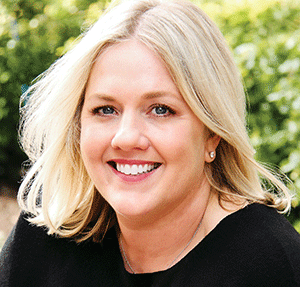Momentum grows in PBM pushback

By Theresa Flaherty, Managing Editor
Updated 10:58 AM CDT, Fri October 6, 2023
 ALEXANDRIA, Va. – A new class action lawsuit filed against Caremark is the latest move in the fight to rein in the “revenue grab” of pharmacy benefit managers, says the National Community Pharmacists Association.
ALEXANDRIA, Va. – A new class action lawsuit filed against Caremark is the latest move in the fight to rein in the “revenue grab” of pharmacy benefit managers, says the National Community Pharmacists Association.
The NCPA is not a named party in the lawsuit, which was filed Sept. 27, but has helped educate the law firms behind it, says Anne Cassity, senior vice president of government affairs at association.
“These (pharmacy direct and indirect remuneration fees) are the claw-backs that happen after a pharmacy is reimbursed, often months after the prescription has been filled,” she said. “It’s to the tune of tens and sometimes thousands of dollars annually taken from pharmacies. We think the lawsuit is a viable option to provide relief.”
The lawsuit, which also names Caremark’s parent company, CVS Health, and Aetna, seeks to recoup millions of dollars in wrongful back-end penalties for Medicare Part D prescriptions, otherwise known as DIR fees, which have risen more than 107,000% in recent years, according to the NCPA.
Battening down
Several states have passed PBM regulations in recent years, but there has been a lack of enforcement, says Cassity. That’s changing.
“This last state legislative session, we’ve seen states pass laws that may provide a hook for enforcement, like increased fines and the ability to kick PBMs out of the state if they continue to not comply with laws,” she said. “You can have the best laws in the world, but if they are not being enforced it’s not helpful. So, we see that as the next step – to batten down enforcement.”
Gaining momentum
On a federal level in Congress, there’s more momentum to reform PBMs than ever, with several bills being marked up and passed out of committee, including the Senate Finance and the House Energy & Commerce committees, says Cassity.
“At the end of the day, there is a bi-partisan desire to pass meaningful PBM reform legislation,” she said. “PBM reform means a lot of things potentially, like (having) more fair and transparent reimbursement in Medicaid; potentially addressing some Part D contracting issues; and making sure patients can go to the pharmacy of their choice. Those are the NCPA’s priorities.”
Seeing is believing
Cassity says there’s plenty independent pharmacies can do to keep up awareness on the issue, including opening their front doors to their members of Congress.
“One thing we’ve seen that’s really effective is to do pharmacy visits,” she said. “It’s one thing to hear about policy and problems; it’s another thing to see it in action. You’ve got PBMs denying claims and then you have patients waiting to get prescriptions filled or vaccinated. When you see the problems it’s not just to the bottom line as a pharmacy. The whole reason that pharmacy exists is to take care of patients.”
Comments